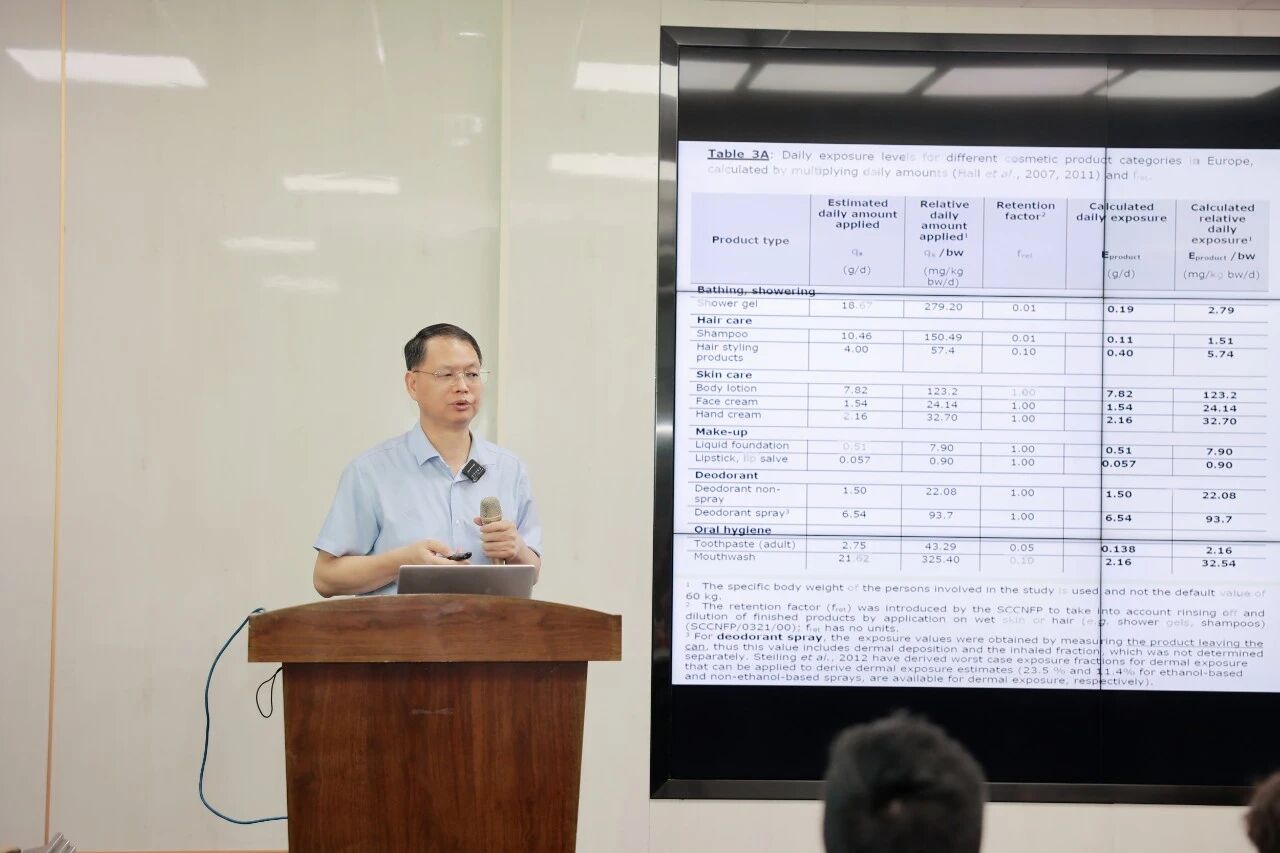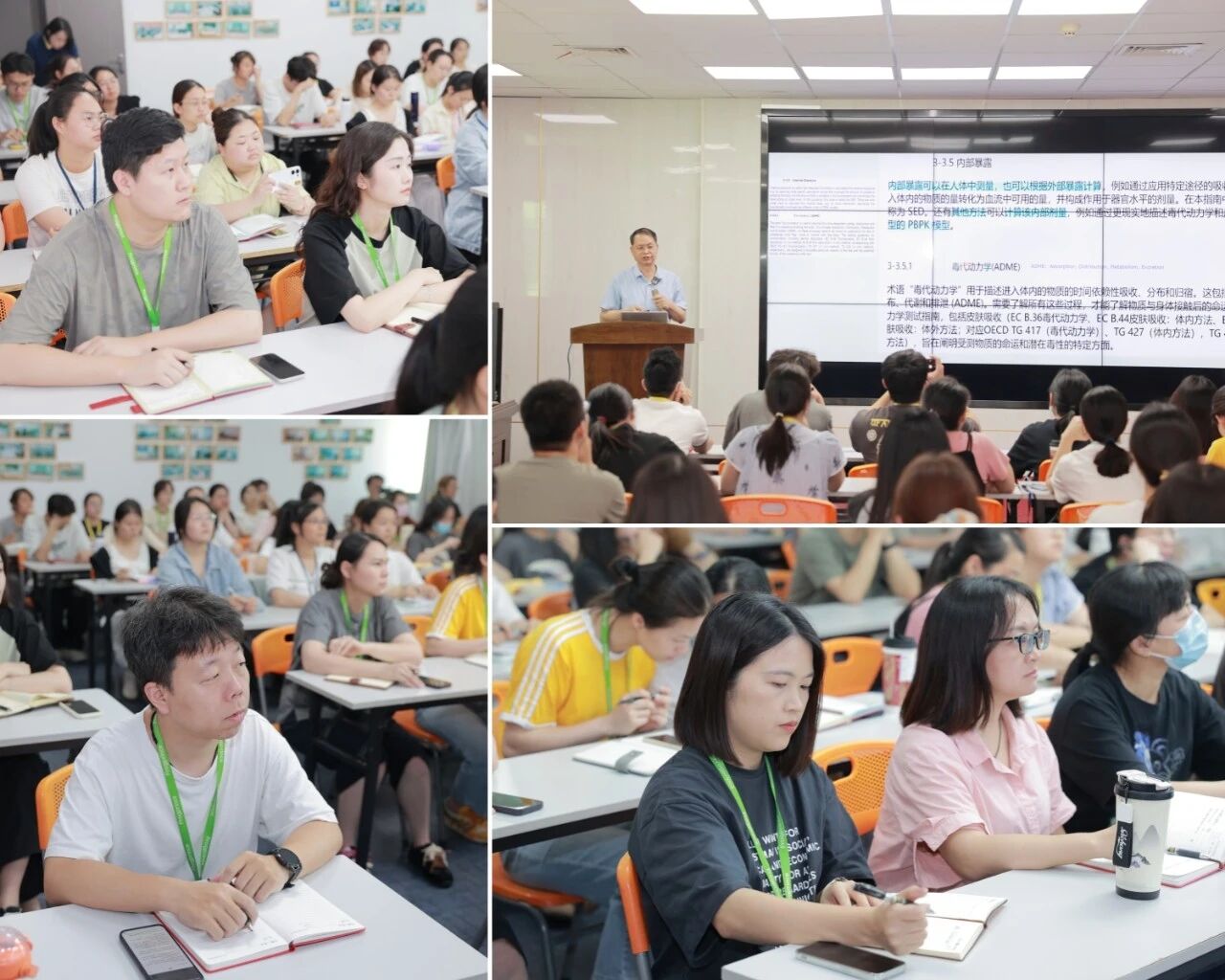On the afternoon of May 21, 2025, Frog Prince Research Institute held a training session on the "EU SCCS Guidelines for Cosmetic Safety Assessment" (Part 2). This course focused on the latest EU standards for cosmetic safety assessment, aiming to enhance participants' understanding and application of international regulations and build a solid compliance foundation for companies' global product development. The course was presented by Wen Wenzhong, Chief Engineer of Frog Prince Group and Vice President of the Research Institute. Representatives from R&D, testing, and regulatory departments participated.

Vice President Wen Wenzhong, drawing on his extensive industry experience and technical background, combined with his practical experience in cosmetic safety assessment, systematically interpreted the latest guidelines issued by the European Scientific Committee on Consumer Safety (SCCS). During the training, Vice President Wen focused on the systematic logic of EU safety assessments, presenting a step-by-step overview of the entire compliance assessment process. He emphasized the integration of experimental data accuracy, test method standardization, and regulatory applicability, tailored to specific job requirements. This helped participants understand how to meet EU standards throughout the entire process, from raw material development and quality testing to registration and filing. Vice President Wen also explained cutting-edge international assessment concepts and, drawing on typical EU market cases, analyzed the key points and challenges in safety assessments for different cosmetic categories, helping companies improve both efficiency and scientificity.

After the course, participants expressed their appreciation for the course's combined theoretical depth and practical guidance. They particularly gained a clearer understanding of the specific requirements for CMR substances and endocrine-active ingredients in EU regulations, which will be of great significance for future risk assessment and compliance management. With the intensification of international competition in the cosmetics industry, EU regulations have become a crucial barrier for companies expanding into overseas markets. Through systematic knowledge transfer, this training helped R&D, testing, and product development teams accurately grasp international safety assessment trends and enhance their ability to navigate complex regulatory requirements. This training provided strong support for companies' product development, quality control, and international market access.

